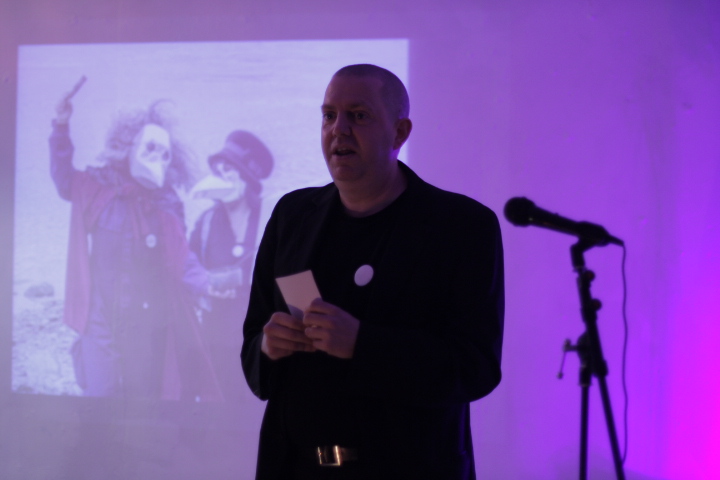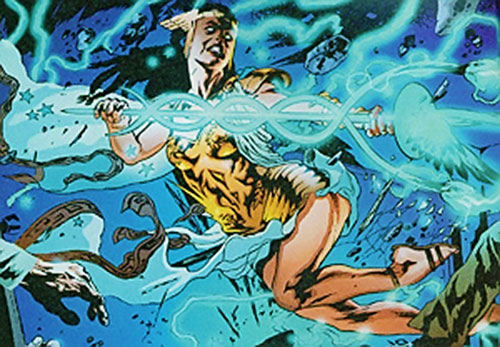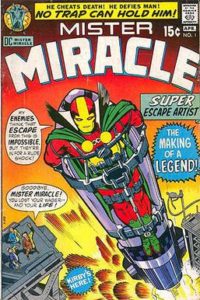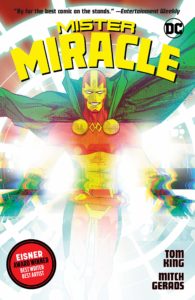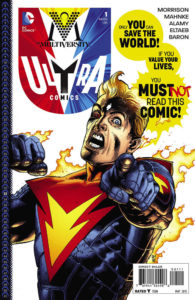 Crossing over Watchmen and Superman is an objectively-terrible idea, but so wrong that I had to look. And, I can tell you, Doomsday Clock is the ultimate act of vandalism against the DC Universe. It might also be dangerous.
Crossing over Watchmen and Superman is an objectively-terrible idea, but so wrong that I had to look. And, I can tell you, Doomsday Clock is the ultimate act of vandalism against the DC Universe. It might also be dangerous.
Watchmen is the classic superhero book, appearing on several lists of the 20th century’s greatest novels. Its success has come at a cost. As Moore has said: “there has been, in the 15 years since Watchmen, an awful lot of the comics field devoted to these very grim, pessimistic, nasty, violent stories…. I’d have liked to have seen more people trying to do something that was as technically complex as Watchmen, or as ambitious”.
Instead of other great works, we’ve had the Dark Age of superheroes, which has been cursed with crossovers and reboots, while strip-mining every last idea Moore ever had. But, even then, a crossover between Superman and Watchmen was unthinkable. Until now.
At the end of Watchmen Adrian Veidt, aka Ozymandius, had unleashed his scheme to save the world at the cost of thousands of lives. The omnipotent Dr Manhattan then left the universe to look for new ones. Doomsday Clock begins in the Watchmen universe, where the unravelling of Ozymandius’ scheme is leading to international tension, and nuclear war is imminent. In an attempt to fix things, Ozymandius sets out to find Dr. Manhattan, following his trail via the magic of quantum tunnelling into… The DC Universe!
My first response is that a lot of this is competent. The book looks likes Watchmen, using the basic rhythm of the nine-panel-grid, although it doesn’t contain anything like Moore’s wonderful formalist experiments. The scenes involving Marionette and the Mime are superb – they are the character finds of 2017 (which is when this series was first published – it’s running very late).
But there are also a lot of crass notes, such as the resurrection of the Comedian. Or the promotional pancake mix – DC have no shame. And the whole thing feels a little over-weighted with meaning, like how the TVs in the background only seem to play one old movie, whose dialogue reflects what is happening to the nearby DC characters. There is also a lot more punching in Doomsday Clock than there was in Watchmen.
 One of the best things about Watchmen was that it was ambitious. The book deconstructed the medium, pushing the limits of both the comic book form and the concept of superheroes. But it wasn’t just about comics – if you knew little more than the basics of comic books, you could still enjoy the murder mystery, or the philosophical questions about fate, or the subtle background details.
One of the best things about Watchmen was that it was ambitious. The book deconstructed the medium, pushing the limits of both the comic book form and the concept of superheroes. But it wasn’t just about comics – if you knew little more than the basics of comic books, you could still enjoy the murder mystery, or the philosophical questions about fate, or the subtle background details.
Doomsday clock, like most modern crossovers, feels like creative book-keeping, attempting to tidy up continuity errors. Since 1986’s Crisis on Infinite Earths (designed to prune the DC Universe’s confusing parallel worlds) we’ve had a torrent of ever-more extravagant crises, which devalue their credibility: zero hour, final crisis, Flashpoint, and so on. This book ties up some problems between the ‘New 52’ from 2011, and the ‘DC: Rebirth’ from 2016: it turns out that all these continuities are Dr Manhattan tinkering with the universe.
Watchmen didn’t require readers to know decades of continuity, but Doomsday Clock relies on it. I didn’t get the significance of the sub-plot about Saturn girl being corrupted by the dark age of superheroes; and a huge part of the plot depends on caring when the Justice Society of America was created, whether it exists and if Superman was a member. As usual with DC’s crises, the Flash is at the heart of it, but I can’t be bothered to keep up with that character, and I am so fed up of continuity. Most of what happens in Doomsday Clock is an obscure debate about canon and continuity, of little interest to most people. Issue 1 ends with Superman talking about his parent’s death when he was at high school. I have no idea whether this was meant to be a shocking revisionist twist or not.
The most interesting thing about this book is the way it tangles universes together – and that is where the true danger lies. Superman exists as a comic book in the Watchmen universe, where he was the inspiration for Hollis Mason, the first Owl Man. And our world has often been folded into the DC Universe as Earth Prime.
Obviously, the comic book universe is affected by the publishers in our world, but comic books also affect this world. Grant Morrison has given the example of people’s lives being changed by the inspirational scenes in All-Star Superman; and I know people whose political views were formed by Marvel comics such as X-Men and Black Panther. There have also been physical interactions between comics and the our world, such as real-world sightings of the magician John Constantine, or the time when Grant Morrison nearly died after writing about injuries to a character he’d based on himself.
Interactions between comics and the real world are strange but they are there. It’s not surprising – the DC Universe is one of the most complicated structures in our world, more complicated and densely networked than the human brain. Grant Morrison was obsessed with the idea that this is sentient, and we have to ask what something like Doomsday Clock does to a living story like this. It is not far off torturing it – and it is inevitable that such things will have an effect on our world in time.
Even if I am wrong, Doomsday Clock is still a book you shouldn’t read. It’s not intended for regular people anyway. Alan Moore once dismissed The Killing Joke by saying “The Killing Joke is a story about Batman and the Joker; it isn’t about anything that you’re ever going to encounter in real life… [it] had no real human importance. It was just about a couple of licensed DC characters that didn’t really relate to the real world in any way.” Doomsday Clock has nothing to say about the real world. And that’s OK for me, because I care about this continuity, but it’s a waste of time for almost everyone else.
But as far as Watchmen goes, this work is on the level of getting Duchamp’s moustache drawn on the real Mona Lisa.. It’s audacious and it’s vandalism and I cannot take my eyes off it.
